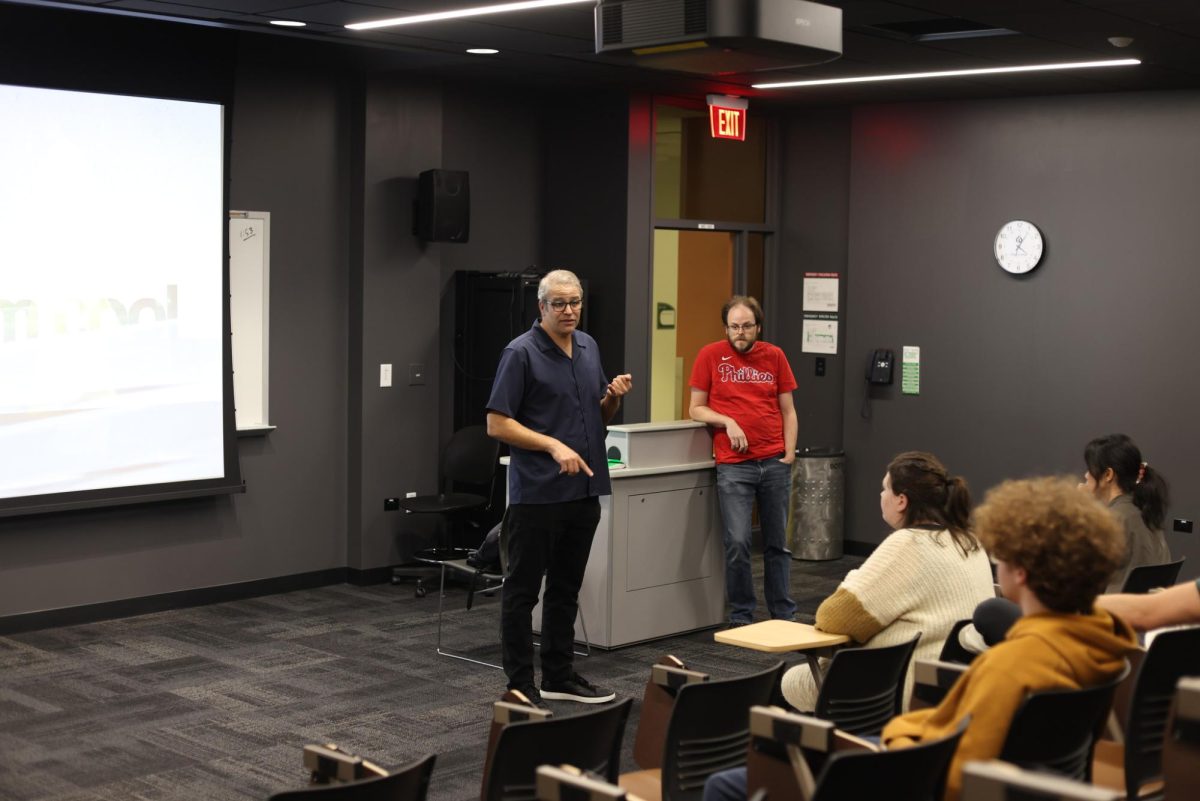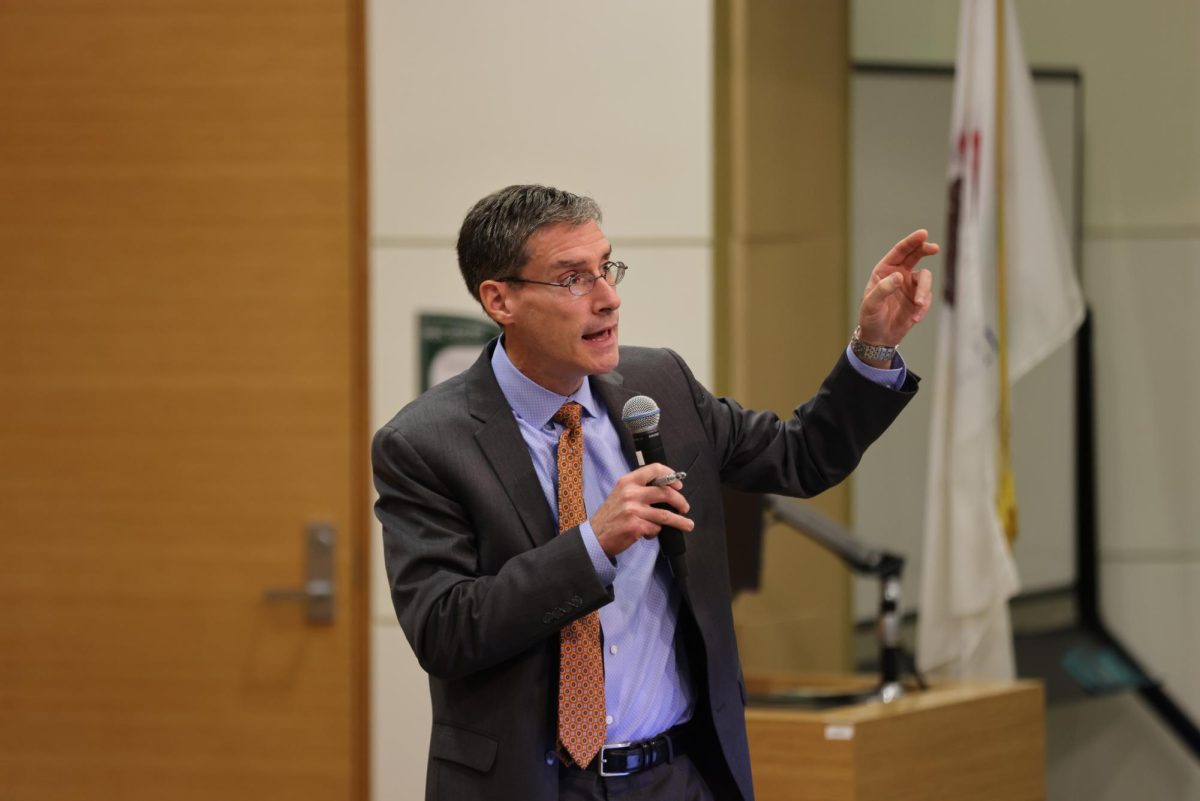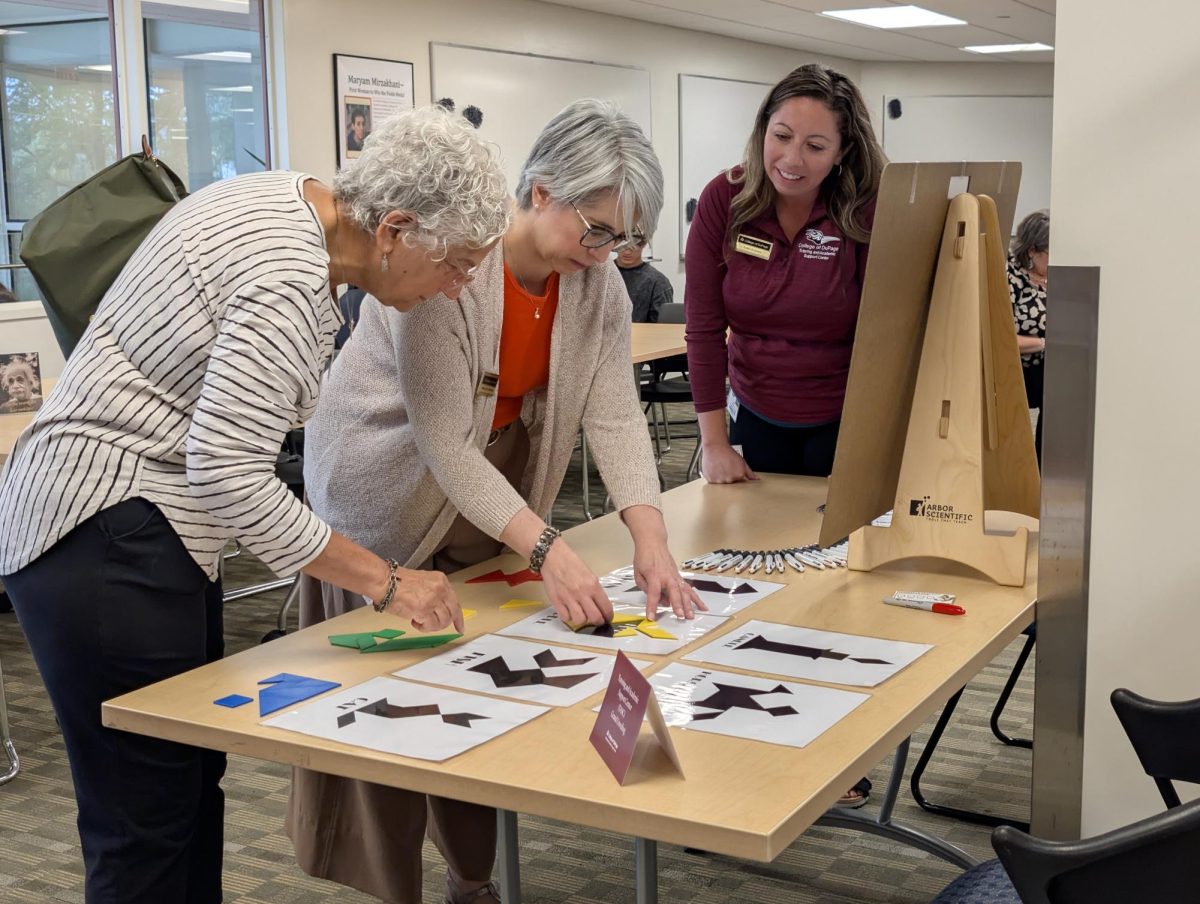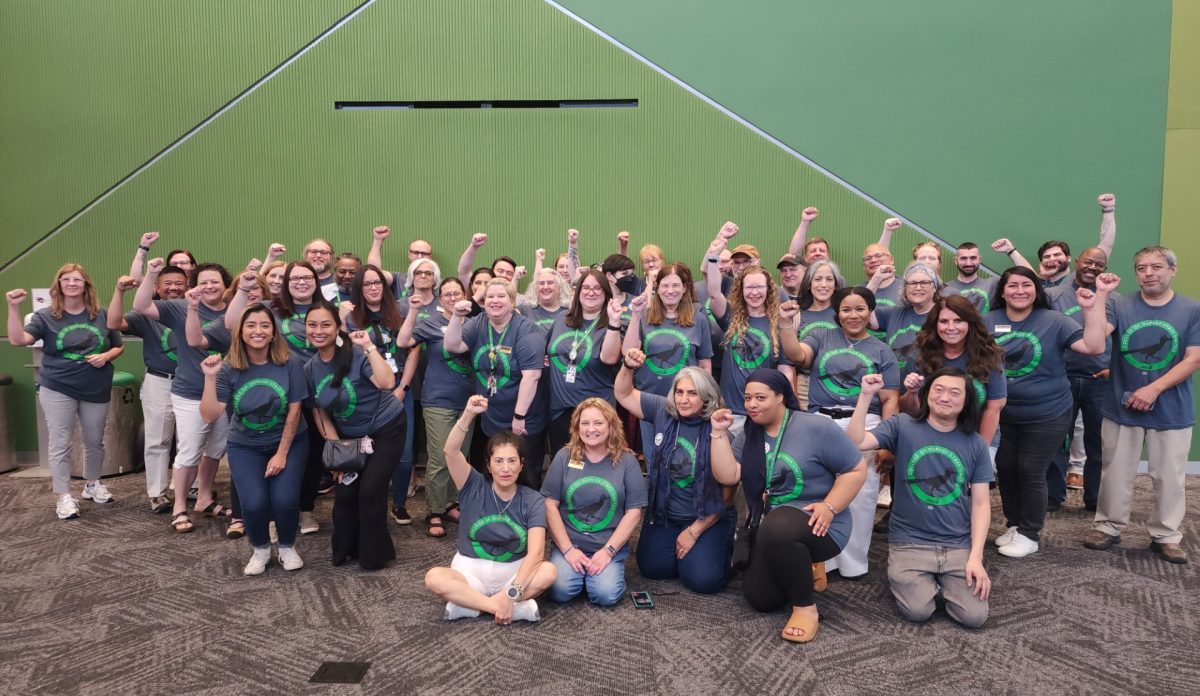“Make love, not war.” Controversial images of riot police and military guards are seen violently resisting seemingly peaceful protesters. Sequences of the bloodied, beaten protesters from late ‘60s America flashed across the screen as part of a series of fall movie screenings at COD. Here an important question is raised: how much do movies parallel and reflect the history and culture of its era? On Oct. 8, Professors Brian Brems and Sam Mitrani showcased the 1969 political drama “Medium Cool” in the Berg Instructional Center.
Brems and Mitrani’s screening selection provided attendees with a glimpse into the social tension in the United States during the late 1960s. “Medium Cool,” directed by Haskell Wexler, is regarded for its controversial use of real-life footage from chaotic, violent protests mixed with a fictional narrative. The screening also proved to be an insightful look at exploring the idea of film as it connects with the culture and society of its era.
“Medium Cool” explores the life of cameraman and documentarian John Cassellis, played by Robert Forster, as he captures the violent tensions erupting in late 1960s America. The film blends its fictional narrative with real documentary footage, controversially featuring the brutal protests outside of the 1968 Democratic National Convention. The film is a time capsule of the ugly reality of the late ‘60s. It destroys the modern perception of America’s ‘60s of hippies and fun, colorful psychedelic imagery, and displays the ugly reality of beaten protesters fighting for equal rights and withdrawal from Vietnam.
“I think it’s important to know that these filmmakers don’t care if people watch it or not. But if you do watch it, it’s based off what you take away. You could have a completely different message and we could both be right. There’s no one answer,” said screening attendee Brady Ermtree.
The decision to screen such a politically charged film was made to offer a glimpse into Brems and Mitrani’s new learning community, Hollywood vs. the World. COD learning communities combine two courses of different subjects into one connected class. In this case, Hollywood vs. the World is a combination of Brems’ English/MPTV course “Intro to Film Art” with Mitrani’s “United States History Since 1945.” The new learning community examines the role in which cinema shapes the perceptions of the United States globally, along with analyzing historical documents connected with the films of its period.
“‘Medium Cool’ was selected as a way of promoting the learning community that Mitrani and I are going to be teaching in the spring,” Brems said. “It’s got literal history embedded in it because it’s there as a witness to capture the protests and the police violence that escalated at the Chicago Democratic National Convention in 1968. It’s a good illustration of the ways in which cinema and history are in dialogue with one another.”
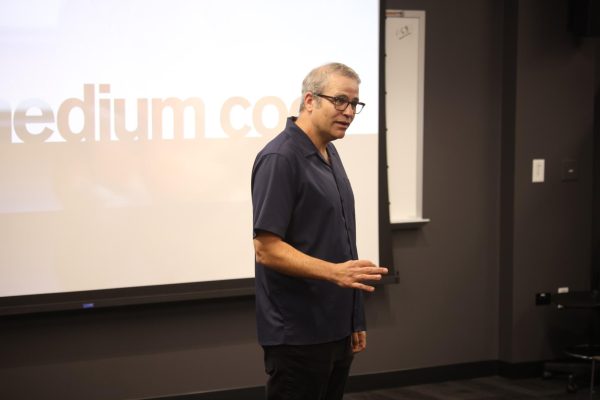
Apart from the analysis of film in its connection to history, the course also looks to have students consider multiple perspectives in society. Brems and Mitrani look forward to openly disagreeing with each other’s ideas in front of students, as they hope for students to understand the value of alternate viewpoints.
“I’m a big fan of history, and I’ve been liking the film art class,” Ermtree said. “So combining the two and having another teacher who knows more about history and one who knows a lot about the films behind it, that kind of is like a good combo because you get perspectives from both sides.”
Brems and Mitrani hope that this learning community will help students to better understand and analyze different perspectives, to improve their understanding of history. Additionally, they hope students can further sharpen their interpretive thinking abilities to distinguish truth from fiction in the media.
“You should approach your education as a way to try to learn how to think about the world,” Mitrani said. ”You’re going to have a life where you get to think about the world you live in, and that’s what these classes are really about. That’s what you can gain from your education. It’s not about your job, it’s about learning how to think through and understand the world you live in.”
For more information about the class, visit the film course section on the official College of DuPage website or email [email protected] or [email protected].



